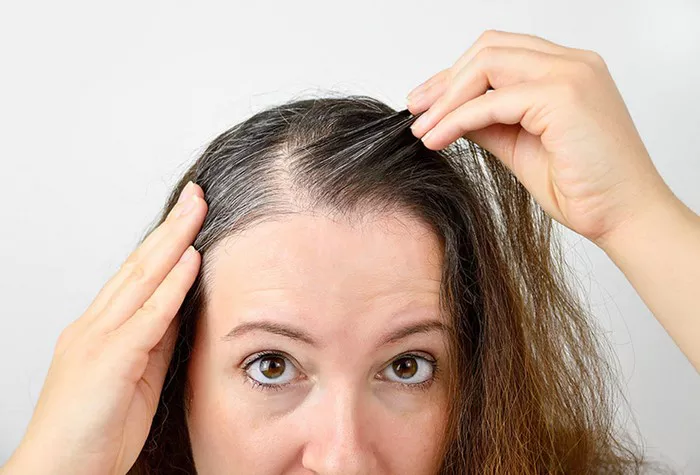In the world of health and wellness, various factors contribute to the overall well-being of an individual, and hair health is no exception. One of the essential minerals often associated with overall health is calcium. While calcium is renowned for its crucial role in maintaining strong bones and teeth, there has been speculation about its impact on hair health. In this article, we will explore the relationship between calcium and hair health, addressing the question: Does a lack of calcium cause hair loss?
The Importance of Calcium in the Body
Calcium is a vital mineral that plays a fundamental role in various physiological functions within the human body. Approximately 99% of the body’s calcium is stored in the bones and teeth, contributing to their strength and structure. However, the remaining 1% is distributed throughout the bloodstream, where it aids in numerous essential functions, including muscle contraction, blood clotting, and nerve transmission.
Calcium and Hair Health: The Connection
While calcium is not directly linked to hair follicles in the same way it is to bones and teeth, its presence in the bloodstream suggests a potential connection to overall health, including that of the hair. Some studies have explored the relationship between calcium levels and hair health, examining whether a deficiency in this mineral can lead to hair loss.
The Mechanism Behind Hair Growth
To understand the impact of calcium on hair health, it is essential to comprehend the mechanism behind hair growth. Hair growth occurs in cycles, with each hair follicle going through phases of growth, transition, and rest. The growth phase, known as anagen, relies on a variety of nutrients delivered through the bloodstream, including vitamins and minerals like calcium.
Calcium Deficiency and Hair Loss: What the Research Says
While there is a wealth of research on the importance of various nutrients for hair health, the evidence linking calcium deficiency directly to hair loss is limited. Most studies on hair health focus on factors such as genetics, hormonal changes, and nutritional deficiencies, but a specific link between calcium deficiency and hair loss remains inconclusive.
The Role of Other Nutrients in Hair Health
It’s crucial to recognize that hair health is influenced by a combination of factors and nutrients. Deficiencies in other essential vitamins and minerals, such as iron, zinc, and vitamins A and D, have been more consistently associated with hair loss. A well-balanced diet that provides the necessary nutrients for overall health is likely to support healthy hair growth.
Maintaining a Balanced Diet for Hair Health
Rather than fixating on a single nutrient like calcium, individuals concerned about their hair health should focus on maintaining a well-balanced diet. Consuming a variety of nutrient-rich foods, including fruits, vegetables, whole grains, lean proteins, and dairy products, can contribute to overall health, including the health of the hair.
Consulting a Healthcare Professional
If someone is experiencing hair loss or is concerned about their hair health, it is advisable to consult with a healthcare professional. A healthcare provider can conduct thorough assessments, including blood tests, to identify any nutritional deficiencies or underlying health issues that may contribute to hair loss.
See Also: Does Change in Water Cause Hair Loss: Things You Need To Know
Conclusion: The Complex Relationship Between Calcium and Hair Health
In conclusion, while calcium is a vital mineral for overall health, there is limited evidence directly linking calcium deficiency to hair loss. Hair health is a complex interplay of various factors, including genetics, hormonal balance, and nutritional status. Rather than focusing solely on calcium intake, individuals should adopt a holistic approach to nutrition, ensuring they receive a well-rounded mix of essential nutrients for overall health and well-being. If concerns about hair loss persist, seeking guidance from a healthcare professional is the best course of action to identify and address any underlying issues.


